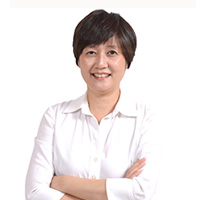
Today is Parents’ Day. In any other year, the day would be celebrated with family dinners, bouquets of red carnations, presents and cash gifts. This year, however, the government is asking people to stay away from the elderly, especially the elderly in care facilities to prevent the spread of the new coronavirus.
The elderly were among the hardest hit by the COVID-19 pandemic, their bodies already weak and with underlying health conditions that made them particularly vulnerable to the highly contagious disease.
In South Korea, nursing homes and geriatric hospitals became hotbeds of contagion, taking many lives. News from around the world showed similar scenes playing out elsewhere -- in Spain, patients in a nursing home were found abandoned with bodies of the dead lying in beds; a single nursing home in Milan, Italy, reported 180 deaths from the new coronavirus and in the US, a nursing home in Washington state is thought to have been the origin of COVID-19 in the country.
The death rate among those in their 80s and above is nearly 20 percent, significantly higher than that for all other age groups. In many countries, doctors expressed anger at having to decide who gets care and who does not as medical systems crumbled under the weight of the unprecedented pandemic.
Doctors who are trained to save lives found themselves forced to make quick decisions on who gets to live. The unspoken rule was that the younger patients, who had good odds of beating the disease and who would continue to contribute to society once they recovered, would be saved over the elderly, already frail and more likely to die despite intensive medical intervention. When efficient allocation of limited resources is a priority, the choice for the doctors seems clear cut.
But that does not lighten the load for the medical professionals who then watch their elderly patients dying a lonely death, with no one to hold their hands as they make their final journey. Lonely, solitary death is one of the crueler aspects of the new coronavirus at a time when there is no effective cure or vaccine. The most effective prevention is isolation, and dying patients are no exception -- they take their leave of the world isolated.
The toll on the medical professionals may not be fully known until the pandemic is over. But as the suicide of the American doctor who worked at the epicenter of the COVID-19 outbreak in New York shows, health care workers on the front lines are clearly suffering. And having to play God should not be part of their job.
Nor should end-of-life care decisions be the responsibility of one’s children. The parents should make that decision ahead of time so that it is a well-considered one, one that is based on one’s own philosophy, one’s own wishes.
Koreans have traditionally prepared for death by getting burial clothes ready. It is an act of filial piety to get these clothes prepared while one’s parents are still well. It is not uncommon for the elderly to take their burial clothes out of the closet for airing every year. Some believe that getting such clothes ready can, in fact, guarantee long life.
While Koreans pay considerable attention to their burial clothes, not many are comfortable discussing end-of-life care. Surely, how you wish your last days to be is more important than what you will be wrapped up in after your last breath has expired.
Since a system allowing people aged 19 and older to express their wish to refuse meaningless life-extending procedures was introduced in 2018, more than 580,000 people have filed the necessary documents.
Health authorities warn that the second wave of COVID-19 expected later in the year may be even more lethal as the virus evolves. The elderly, once again, will be highly vulnerable, and the likelihood of death from the disease will again be high. Now is perhaps a time to give thought to end-of-life care for the elderly in the family.
By Kim Hoo-ran (khooran@heraldcorp.com)
--
Kim Hoo-ran is the culture desk editor at The Korea Herald. -- Ed.
-
Articles by Kim Hoo-ran




![[Weekender] Korea's traditional sauce culture gains global recognition](http://res.heraldm.com/phpwas/restmb_idxmake.php?idx=644&simg=/content/image/2024/11/21/20241121050153_0.jpg&u=20241123224317)












![[More than APT] Residents, architects together design homes](http://res.heraldm.com/phpwas/restmb_idxmake.php?idx=652&simg=/content/image/2024/11/24/20241124050036_0.jpg&u=)
